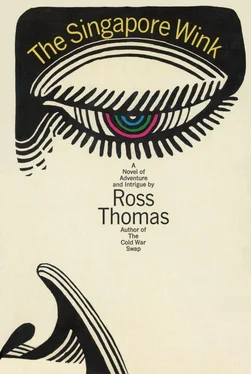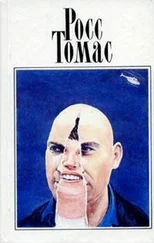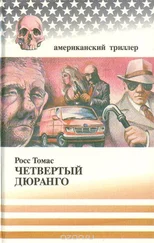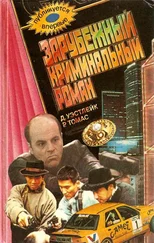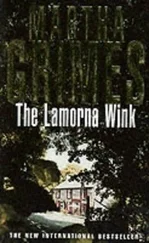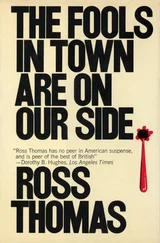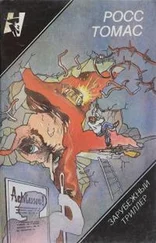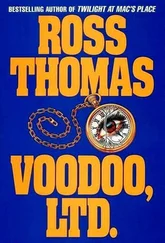Росс Томас - The Singapore Wink
Здесь есть возможность читать онлайн «Росс Томас - The Singapore Wink» весь текст электронной книги совершенно бесплатно (целиком полную версию без сокращений). В некоторых случаях можно слушать аудио, скачать через торрент в формате fb2 и присутствует краткое содержание. Город: New York, Год выпуска: 1969, Издательство: William Morrow, Жанр: Триллер, на английском языке. Описание произведения, (предисловие) а так же отзывы посетителей доступны на портале библиотеки ЛибКат.
- Название:The Singapore Wink
- Автор:
- Издательство:William Morrow
- Жанр:
- Год:1969
- Город:New York
- ISBN:нет данных
- Рейтинг книги:5 / 5. Голосов: 1
-
Избранное:Добавить в избранное
- Отзывы:
-
Ваша оценка:
- 100
- 1
- 2
- 3
- 4
- 5
The Singapore Wink: краткое содержание, описание и аннотация
Предлагаем к чтению аннотацию, описание, краткое содержание или предисловие (зависит от того, что написал сам автор книги «The Singapore Wink»). Если вы не нашли необходимую информацию о книге — напишите в комментариях, мы постараемся отыскать её.
What is “the Singapore Wink?” We won’t tell you here, but it involves blackmail, murder, a most unusual FBI agent, and the sexy daughter of a crime czar — to name but a few of the ingredients in Ross Thomas’s wildest adventure yet.
The Singapore Wink — читать онлайн бесплатно полную книгу (весь текст) целиком
Ниже представлен текст книги, разбитый по страницам. Система сохранения места последней прочитанной страницы, позволяет с удобством читать онлайн бесплатно книгу «The Singapore Wink», без необходимости каждый раз заново искать на чём Вы остановились. Поставьте закладку, и сможете в любой момент перейти на страницу, на которой закончили чтение.
Интервал:
Закладка:
“Six-nineteen,” the bellhop said. He was a kindly looking little man who probably was fond of his grandchildren. “This way, sir.” I followed him down the corridor and he unlocked the door and ushered me into a two-room suite.
“John L. Lewis always liked this suite,” the bellhop said as he put the suitcase on a rack and pulled back the curtains. “He liked it because of the view.” Obediently I walked over to the window and looked out. By craning a bit I could see Lafayette Park and beyond that the White House.
“He probably wanted to keep a check on what was going on,” I said and handed him a dollar. The bellhop liked that and said so. After he left, I inspected the bathroom whose fixtures were newer than the hotel and then unlatched my bag and hung a suit in the closet. When you’ve done all that there’s not much else to do in a hotel room except have a drink or call somebody. Convinced that nobody in the White House cared whether I was in town or not, I decided to have a drink and went in search of the Scotch that Mr. Ruffo had promised.
It was in the sitting or living room which contained some club chairs, a couple of divans, a writing desk and a coffee table which held a bucket of ice, six glasses in case I had company, a bottle of soda and a fifth of Chivas Regal which proved to me that Mr. Ruffo was indeed thoughtful even if he didn’t like my manners.
I put three cubes in a glass, poured in some Scotch, and then journeyed to the bathroom to fill it up with water. On the way back to the sitting room I started to sweat and I managed to get the glass back down on the coffee table before the shakes came. It lasted for no longer or shorter a time than usual. Angelo Sacchetti fell in slow motion again, still clutching his cutlass, and his face turned up to me and he winked again, that grotesque Sacchetti wink that screwed up the entire left side of his face. Then it was over and I downed the drink and took some small comfort in the knowledge that I wouldn’t see Sacchetti’s face again for at least twenty-four hours. After the drink I showered, decided to hell with shaving, and did Mr. Charles Cole the honor of brushing my teeth and putting on a fresh shirt. I was halfway through my second drink when the telephone rang and the ever-polite Mr. Ruffo said that he would await me in the lobby.
The ride to Mr. Charles Cole’s residence on Foxhall Road took about twenty minutes and along the way Mr. Ruffo pointed out some of the Washington sights that he thought might prove of interest. They didn’t really, but he seemed to think it was part of his job and for all I knew it may well have been.
Foxhall Road in northwest Washington is where the rich live. They live other places, too, I understand. In Georgetown and Virginia and Maryland. A Vice-President once lived in an $89,000 cooperative apartment in southwest Washington because it was convenient and he sometimes liked to walk to work. He moved into the apartment after the President decided that a separate mansion for a Vice-President would cost the country too much money. The Vice-President wasn’t rich and I doubt that he could have afforded Foxhall Road. I know he couldn’t have afforded the house that belonged to Charles Cole.
It looked as if it were located on at least ten acres of wooded ground, but then I’m city oriented and an acre remains a dimly defined area. But in Los Angeles the grounds would have composed a good-sized city block. There was a bluegrass lawn that grew right up to the trunks of the pines, the oaks, and the maples and I knew just enough about horticulture to realize that all that required a full-time crew of skilled gardeners. There were a few magnolias and some dogwood. They lined the crushed oyster-shell drive that wound leisurely up to what at first glance looked like Tara. There were eight white columns that went three stories high to support a Federal arch. Each side of the main house boasted a two-story wing that seemed large enough to house the full staff of the Portuguese Embassy. The windows were flanked with white wooden shutters that apparently really worked and the entire structure was built of soft, red used brick which was supposed to make it look old and almost succeeded. There was no garage that I could see and I assumed that it was discreetly out of sight in back along with the swimming pool and the servants’ quarters.
The Cadillac crunched up the drive and stopped in front of the entrance to the house which was dominated by a huge wrought-iron lantern that hung on a thick metal chain. The chauffeur was out and had the door open on my side of the car almost before it came to a full stop. I climbed out and paused when I noticed that Ruffo made no move.
“Aren’t you invited?” I said.
“This is as far as I go, Mr. Cauthorne,” he said and let me have another look at his winning smile. “As you say, I just run the pickup and delivery service.”
I didn’t have to ring the bell at the wide double doors that served as the entrance to the white-columned mansion. One of them opened as soon as I mounted the thirteen steps and started to cross the bricked veranda. And if I expected a silver-haired, Negro butler in a white coat, I was in for a disappointment. The man who opened the door was young, tanned, and dressed in a black suit, white shirt and black tie. He looked at me carefully, taking his time, and when he was through he said: “Mr. Cauthorne.”
“Yes.”
He nodded and stepped back, opening both of the double doors wide as he did so. “Mr. Cole is expecting you in the library.” In back of me I could hear the Cadillac move off, bearing the polite Mr. Ruffo to wherever he went that time of evening.
I followed the young man in the black suit into a formal entrance hall that was paved with large squares of black and white marble. There was an immense crystal chandelier about halfway down the hall and its lights played upon some pieces of cherrywood and walnut furniture that looked old and well cared for and terribly expensive. To the right of the chandelier was a gracefully curving staircase that floated up to the second floor, but we didn’t get that far. Instead, the young man stopped at a paneled sliding door, knocked once, and then pressed a button that caused the door to move silently into its recess in the wall. The young man entered first and I followed. Then he stopped, stepped to one side, and in a flat voice, without inflection, said: “Mr. Cole, Mr. Cauthorne is here.”
It was a big room, oblong in shape, and it smelled of leather and the burning apple wood that flamed and crackled in the fieldstone fireplace which, at first glance, looked large enough to roast a medium-sized ox. A man rose from one of the dark leather chairs that were placed on either side of the fireplace, dropped a newspaper to the floor, and moved towards me, his right hand outstretched. I stood where I was and it took him a while to walk the thirty or so feet from the fireplace across the thick, dark brown carpet to where I waited.
“Mr. Cauthorne,” he called, “I’m delighted you could come.”
“Everybody is delighted but me,” I said and took the proffered hand and shook it politely. There didn’t seem to be anything else to do.
Charles Cole turned to the young man in the black suit. “We’ll dine in here, I think, Joe.” Not Jonathan, or James, or even Malcolm. Just Joe. “But first,” Cole added, “I suggest that we have a drink.”
“Yes, Mr. Cole,” Joe said. He turned and disappeared through the sliding paneled door which closed behind him. For the first time, I noticed that the door had no handles.
“There’s a bit of a chill in the air for so late in the spring,” Cole said as he took my arm and steered me towards the fireplace. “I thought a fire would be pleasant.”
He indicated that I should take one of the leather chairs and he lowered himself into the other one. Then he rested his elbows on the arms of the chair, formed a steeple of his fingers, and looked at me pleasantly enough, almost as if he were the friendly family counselor who had helped many a young man out of similar difficulty. Charles Cole, I noticed as I returned his friendly gaze, was not a tall man, but neither was he short. He had an oval face and wore his hair long at the sides, perhaps to compensate for his ears which stuck out a trifle, and perhaps to compensate also for the top of his head whose pink skin glistened in the light from the fire and from the two reading lamps that stood by each of the leather chairs. His eyebrows were grey as was his hair, but the carefully trimmed military mustache that he wore beneath a straight thin nose was pure white. The mouth, now forming a slight smile, gave way to a firm chin which was just threatening to grow another one beneath it. His eyes were brown and large, or perhaps magnified by the thick black-framed glasses that he wore, and they either twinkled or sparkled behind the lenses. I was never sure.
Читать дальшеИнтервал:
Закладка:
Похожие книги на «The Singapore Wink»
Представляем Вашему вниманию похожие книги на «The Singapore Wink» списком для выбора. Мы отобрали схожую по названию и смыслу литературу в надежде предоставить читателям больше вариантов отыскать новые, интересные, ещё непрочитанные произведения.
Обсуждение, отзывы о книге «The Singapore Wink» и просто собственные мнения читателей. Оставьте ваши комментарии, напишите, что Вы думаете о произведении, его смысле или главных героях. Укажите что конкретно понравилось, а что нет, и почему Вы так считаете.
